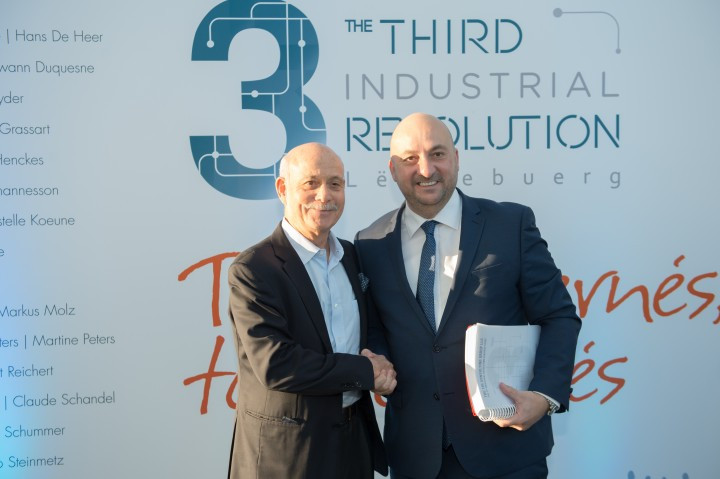Amid uncertainty surrounding the US elections, the vision of Rifkin, an American economist, is welcome reassurance that we are still on the right path.
He addressed a full house at the Luxembourg Sustainability Forum on Monday to unveil the “Third Industrial Revolution” project, a 475-page roadmap for Luxembourg’s future. More than 300 people worked for one year to develop the strategy.
“We are at a new stage in the journey,” Rifkin said. “We’re moving toward ‘Smart Europe’.” Luxembourg has become the first member state to develop a comprehensive systematic plan across all sectors to make this journey. Indeed, the Grand Duchy is the first state to receive European Investment Bank funds for its transformation into a sustainable country. Governments across Europe will be watching closely to see how the flagship effort fares.
The initiative was created in response to several critical issues facing our world: global GDP is slowing due to declining productivity, which has resulted in high unemployment; economists tell us this trend will continue for 20 more years. And even as growth wanes, global warming is accelerating. Extreme weather events like droughts, wildfires and hurricanes have become the new norm.
Technological convergence
To deal with these crises, Rifkin asserted, we need a new economic vision for the world. It must be compelling, easily deployable and a serious paradigm shift. So how do the great economic paradigms in history occur? When three technologies converge--new communication methods, new sources of energy and new modes of mobility--economic activity moves more efficiently and things being to change fundamentally.
“In the First Industrial Revolution, the Brits moved from a manual printing press to the telegraph system, and steam converged with coal,” stated Rifkin. “In the Second Revolution, the US centralised electricity: telephone, radio and TV. These converged with cheap Texas oil and Henry Ford put everyone on the road. We moved from urban to suburban and everything changed again. This revolution peaked in July 2008 when crude hit US$147 a barrel and the economy shut down. The collapse of the financial market 60 days later was an aftershock--our entire system runs on fossil fuels.”
Sharing economy
According to Rifkin, we are in a convulsion period of growth, slowdown, growth, slowdown. The way forward is to embrace the Third Industrial Revolution in which a circular economy runs at very low marginal cost through the digitisation of social and economic life. The sharing economy can deal with issues capitalism and socialism haven’t successfully addressed. For example, electricity cooperatives will deliver both physical and political power to the people.
“The sun has not sent anyone a bill. The wind has not invoiced anybody. It’s free,” said Rifkin. “What happens when your business plugs into this system and everything is marginal cost? It changes the business model. No Second Industrial Revolution model can compete with that. That’s the revolution.”
